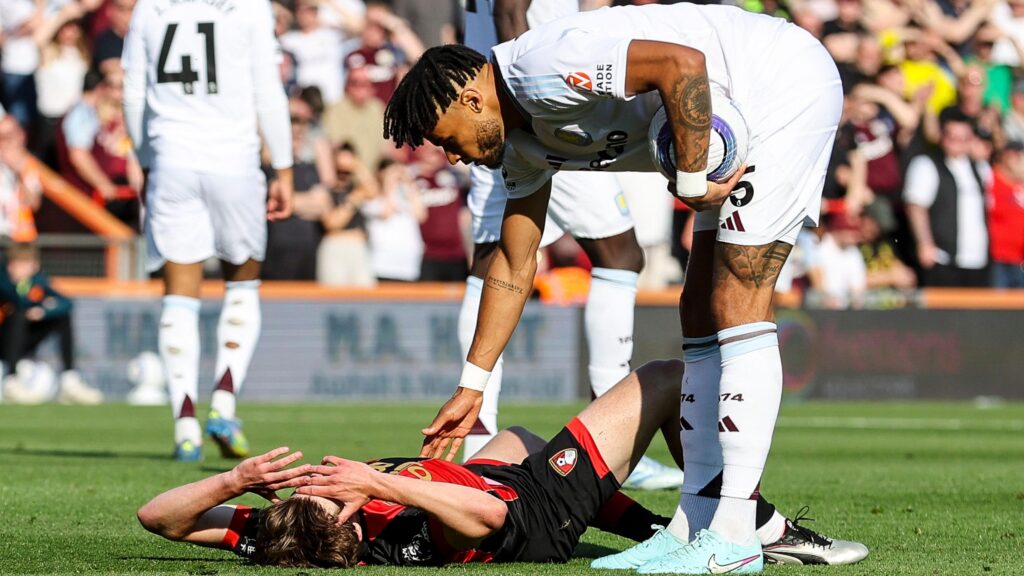In a recent Premier League match, significant concern arose following an incident involving Bournemouth midfielder Alex Scott and Aston Villa’s defender, Tyrone Mings. The situation escalated when Scott suffered a fractured jaw due to what manager Andoni Iraola referred to as a “very violent” elbow from Mings during their encounter at the Vitality Stadium.
Alex Scott, only 21 years old, was involved in the altercation just six minutes into the match. The elbow strike from Mings was vigorous enough for Scott to need substantial treatment before continuing to play. However, after enduring additional defensive efforts, he fell to the ground once more, this time clutching his face after an altercation with fellow teammate, Amadou Onana. Ultimately, Scott had to be substituted at halftime, his condition prompting immediate worries from both team members and supporters alike.
Unfortunate for Villa, the match took a turn as they were reduced to ten players when Jacob Ramsey received a second yellow card with just ten minutes left in the game. Despite the fervor and intensity of the match, Mings walked away unpunished, which caught Iraola’s attention and dismay. He expressed his strong feelings in a statement to BBC Sport, pointing out that the severity of Mings’s actions warranted a far heavier penalty.
Iraola articulated his perspective, emphasizing the distinction in the timing and impact of receiving a red card in the early minutes versus late in the game, arguing that Mings must have been cognizant of his surroundings and the consequences of his actions. He stated, “He sees Alex coming, and for me, it is very dangerous.” The manager voiced hopes for Scott’s recovery, worrying that he might not finish the season and emphasizing the violence of the elbow strike.
Meanwhile, the incident did not go unnoticed by commentators and pundits from BBC’s Match of the Day, who weighed in on the collision’s nature. Former Welsh defender, Ashley Williams, argued that while he doesn’t believe Mings intended to injure Scott, it was a concerning incident that pointed to the potential risks involved in such collisions due to the height and weight differences between players. Furthermore, ex-goalkeeper Shay Given expressed a contrary view, suggesting that Mings was indeed aware of what he was doing during the episode, claiming that Mings did make an intentional move that resulted in contact with Scott’s jaw.
The scrutiny of the incident illustrates how contentious interactions in sports can generate significant debate, particularly regarding player safety and the responsibilities athletes have to each other on the field. The response to Mings’s actions emphasizes a broader conversation surrounding physical play and the potential for serious injury within football.
In conclusion, while the match ended, the fallout continues, highlighting the fine line players walk during competitive sports. With injuries like Scott’s, it beckons a reevaluation of how physical interactions are monitored and disciplined within the Premier League, ensuring player safety remains at the forefront of the game. As this incident unfolds, it captures the narrative of sportsmanship and the need for strict adherence to rules that ensure safety in the often high-stakes nature of football.



